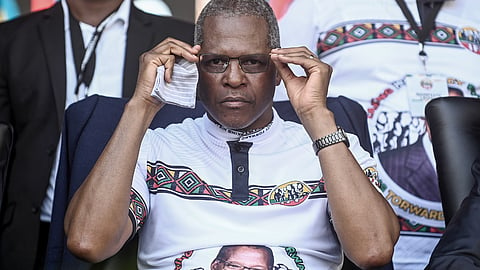John Matisonn – Glimmers of hope for GNU as Hlabisa and others get into action
New government ministers are moving quickly to address issues in dysfunctional municipalities, visa processes, renewable energy approvals, and crime. Notable figures include Cooperative Governance Minister Velinkosini Hlabisa, Home Affairs Minister Dr. Leon Schreiber, and Public Works Minister Dean Macpherson. Police Minister Senzo Mchunu focuses on law enforcement reform. Improved parliamentary oversight and strong signals for change, especially from Hlabisa, who promises drastic measures against non-functioning councils, indicate a commitment to urgent reform.
Sign up for your early morning brew of the BizNews Insider to keep you up to speed with the content that matters. The newsletter will land in your inbox at 5:30am weekdays. Register here.
Join us for BizNews' first investment-focused conference on Thursday, 12 September, in Hermanus, featuring top experts like Frans Cronje, Piet Viljoen, and more. Get insights on electricity and exploiting SA's gas bounty from new and familiar faces. Register here.
By John Matisonn
Early signs of where government is likely to improve include speedier dismantling of dysfunctional municipalities, streamlining the visa process, faster renewable electricity approval, and a renewed fight against "construction mafias".
___STEADY_PAYWALL___

